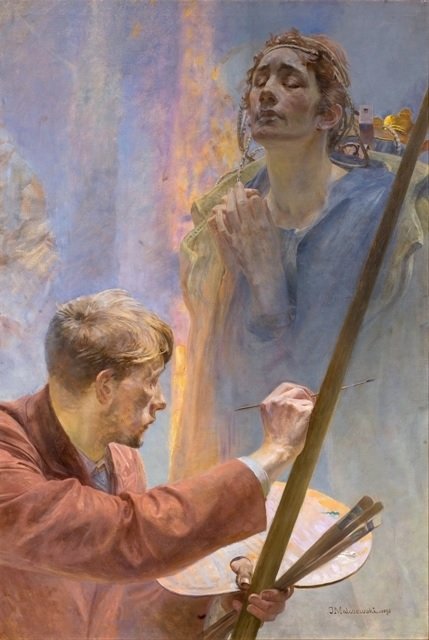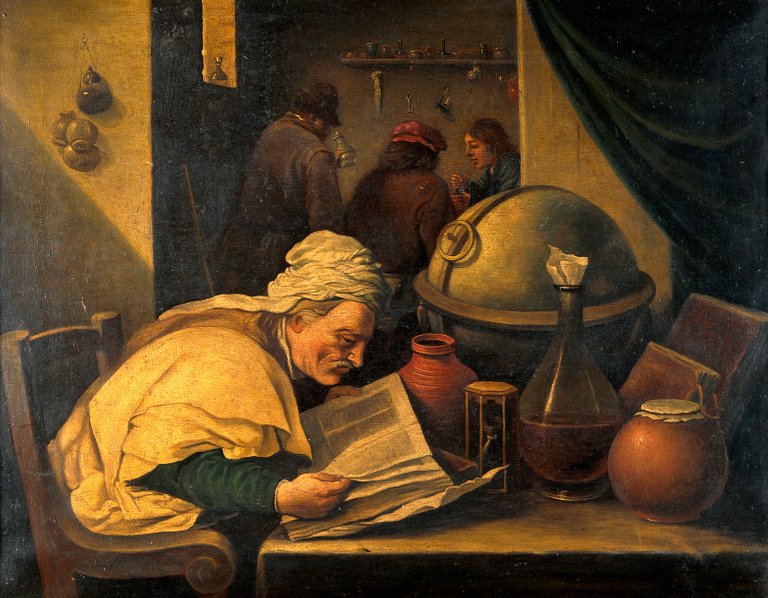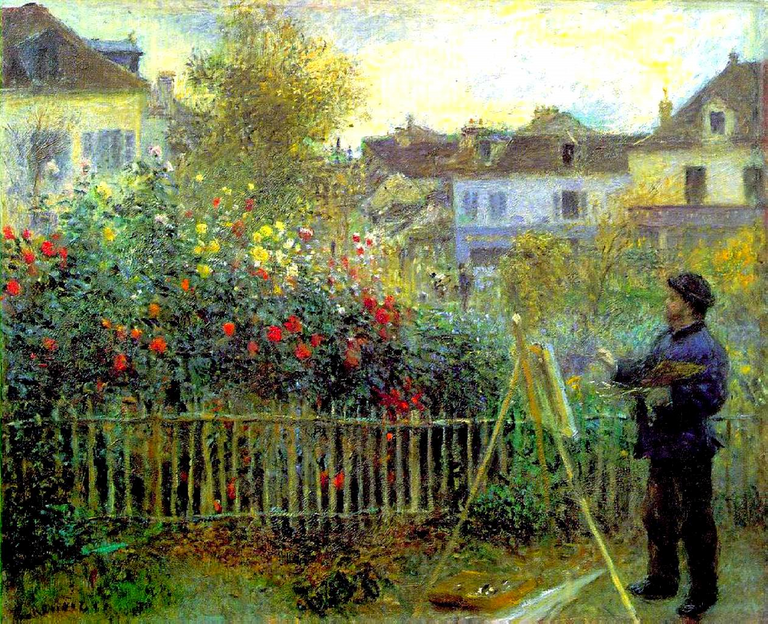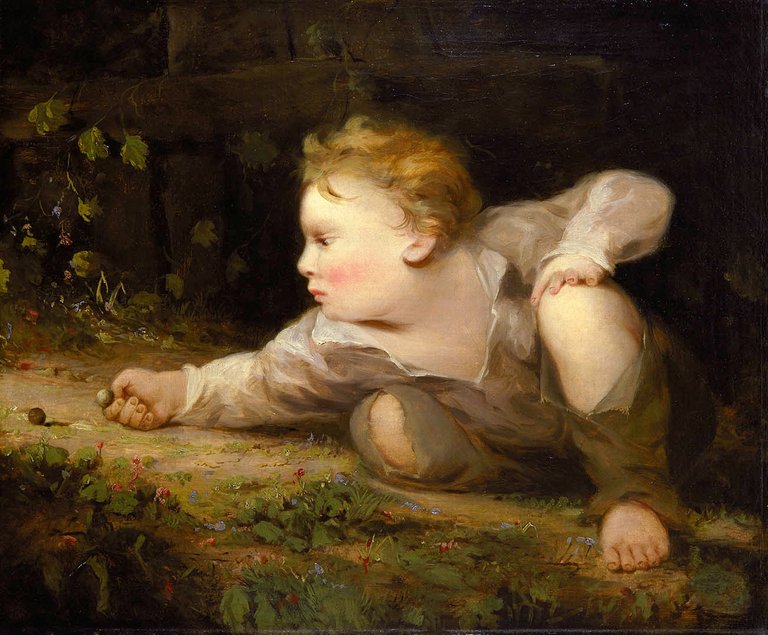Creativity And The Pursuit Of Excellence

Source
One of the oldest and most important questions in philosophy is;
How should I live my life?
Many answers have been proposed over time, though there are two which have been more prominent since the time of the Ancient Greeks. The answers being that one should fashion their life in the pursuit of pleasure or alternatively in the pursuit of excellence. Of the Ancient Greek philosophers, a life spent in the pursuit of pleasure and comfort was a life not fit for human beings. Aristotle wrote;
“The many, the most vulgar, would seem to conceive the good and happiness as pleasure, and hence they also like the life of gratification. Here they appear completely slavish, since the life they decide on is a life for grazing animals. ”Practically all the Ancient Greek philosophers, thought that a proper life for a human being was one that was lived in the pursuit of excellence. Only such a life, they believed, could bestow that which all human beings naturally desire: happiness and fulfillment
Aristotle, Nicomachean Ethics
A 20th century American philosopher, Richard Taylor too agreed with this view. In a number of his works, he set out to clarify the nature of human excellence and happiness through the construction of what he called an “ethics of aspiration”

Source
A question that arises from the proposal that a human being should spend their life in pursuit of excellence is:
What is excellence?
For the Ancient Greeks many things, animate and inanimate alike, had their own excellence, a concept not foreign to us. We can speak of an excellent computer, an excellent doctor, an excellent car... Yet as the Ancient Greeks realized, it is impossible to bestow the title of excellence on anything unless its functions is specified beforehand. It is possible to speak of an excellent doctor only because we know that the function of the doctor is to heal people, or an excellent car because we know that the function of a car is transport.
As Aristotle, realized, if one is to arrive at knowledge of human excellence, with what demarcates some human beings as better than others, then one must first specify the function of a human being. You should note that here we are not looking for the function of a human being insofar as one performs their vocation as a doctor, lawyer or whatever else, but the function of a human being as a human being, independent of one's vocations. As Aristotle, explained;
“Are we then to suppose that, while the carpenter and the shoemaker have definite functions or businesses belonging to them, man as such has none, and is not designed by nature to fulfill any function? ”
Aristotle, Nicomachean Ethics
In order to discover the function of anything, Aristotle, noted that it was necessary to specify the capacity or characteristic unique to that thing. For example a car is unique in that it has an engine, and hence its function is to ease transportation . A doctor is uniquely skilled in the art of healing, and hence the function of a doctor is to heal people.
In order to discover what the function of a human being is Aristotle, set out to determine the characteristic or capacity unique to the human being alone. After contemplating the notion, he concluded that this unique characteristic is the capacity for reason, or a rational thought. For Aristotle, human excellence was the fulfillment of a rational life, in which reason guides both intellectual contemplation and practical action. In attaining such a function, Aristotle, thought an individual would attain excellence, and lead a happy and fulfilling life.
Richard Taylor agreed with Aristotle's proposition that the fulfillment of the capacity unique to the human being would constitute human excellence, while he thought reason was a capacity unique to the human being, he also proposed creativity as another such capacity. Furthermore he thought fulfilling one's potential for creativity was a better path to human excellence than the pursuit of reason alone. As he wrote;
“[Creativity] is certainly what distinguishes us from every other creature. Human beings are, by virtue of their intelligence, capable of creating things that are novel, unique, sometimes of great worth, and even, though rarely, of overwhelming value. One thinks, for example, of scientific theories or great works of art or literature, or profound philosophical treatises like Spinoza’s Ethics, or the great and lasting music that emerges from the creative genius of one person. It is here, certainly, that we see what distinguishes us from all other living things and entitles us to think of ourselves as akin to the gods. ”
Richard Taylor, Restoring Pride

Source
It is very apparent that human beings we possess a creative capacity which dwarfs that of any all the other animals. Taylor, stressed that the capacity of humans is not limited to the creation of works within the field of science, art, philosophy, or literature, instead, creative intelligence can be used by exceptional dancers, athletes, businessmen, and even gardeners or our parents. Any activity he noted, which is
“done not by rule, rote, or imitation, but with successful originality ”is an activity performed utilizing creativity.
Richard Taylor,
Taylor, believed the fulfillment of the capacity for creative activity to be the path to excellence, and thus true fulfillment. He put forth an imperative to his readers, writing:
“All this points to a kind of imperative, minimally expressed as: Do something. Better expressed, it says: Create something. To do otherwise is simply to waste your precious life. Do not…rest upon your dead kinship with the beasts. All they do is eat, sleep, reproduce, then die and decay. For a person to do no better than that is in effect to lapse into a mere animal nature. ”
Richard Taylor, Restoring Pride
But as Taylor, realized, many of us lack an activity we are passionate about, and therefore may feel as if there is nothing they can engage in to cultivate our creativity and achieve excellence. We may feel as if we are destined to as Taylor, put it,
“lapse into a mere animal nature ”He thought though that this conviction was nonsense, for as the 20th century psychologist Carl Jung, observed,
Richard Taylor,
“… if you have nothing at all to create, then perhaps you create yourself. ”
Carl Jung
“To “give style” to one’s character– a great and rare art! ”wrote Nietzsche.
Nietzsche, The Gay Science
Human beings alone, realized Taylor, Carl Jung, and Nietzsche have the ability to utilize their creativity to stimulate an inner transformation and create one's own self just as an artist creates a beautiful work of art. Thus instead of supposing that a work of art must be something that all can behold, one should consider making own life a work of art. We all have ourselves to begin with, and a time of uncertain duration to work on it. You do not have to be what you are, and even though you may be quite content with who and what you are, it will not be hard for you to think of something much greater that you might become. It need not be something spectacular or even something that will attract any notice from others. What it will be is a kind of excellence that you project for yourself, and then attain - something you can take a look at, with honest self appraisal, and be proud of.
Taylor, borrowing a term from the Roman Stoic Epictetus, noted that the vast majority of human beings are "willing slaves." While creative individuals are ones who invent their own life, creatively pursuing a passion and sculpting their self according to an inner ideal, willing slaves in the words of Taylor, let;
“society more or less choose their lives for them. ”
Richard Taylor
Taylor, believed willing slavery to be the normal, or default condition of the human race. The normalcy of willing slavery arising from the innate tendency of human beings to rest their feelings of self-worth on the approval of others.

Source
As children, we look to our parents to gauge whether we are being good or bad, and the development of our personality and sense of self-worth is to a large extent determined by how our parents respond to us. Which for children this tendency is natural and inescapable. But as individuals emerge into adulthood, instead of cultivating self-reliance and judging one's worth based on one's own self-created ideas, individuals remain dependent on the opinions of others, in order to gauge their worth as a human being. And while taking note of how others react to one's behavior is important to an extent, the vast majority of individuals are so concerned with what others think of them that it becomes detrimental to their ability to live a fulfilling life. They become in the words of Taylor, willing slaves;
“…you need no special settings or situations to discern this overwhelming need of the multitude to impress others. These people measure their entire worth by what others think of them. In other words, instead of creating their own lives, they let the world create their lives for them. Instead of responding to what they themselves might want, if they but allow themselves to be what they are, they respond to what everyone else wants of them. ”
Richard Taylor, Restoring Pride
One who spends their life cultivating their capacity for creativity by pursuing a passion and inventing their own life must of necessity judge their self-worth based on their own self-generated ideals, for that is what it means to "create one's own life."For such an individual, whether one's creations garner applause or disdain from others is insignificant. Taylor, noted attainment of excellence is itself the greatest reward even if the world takes no notice of it, bestowing on its possessor feelings of pride, fulfillment, and true self-esteem.
There are as many different paths to personal excellence as there are individuals, Taylor urges us to look within ourselves, find out where our potential gifts lie and fight against the innate urge to become a willing slave in favor of living a life devoted to creativity. To do otherwise he proclaimed is to walk an all-too-common path to nothingness:
“Directions cannot be given for achieving personal excellence, because we are all different. The gifts and potentialities of one person are not those of another. Indeed, each person is unique. His or her gifts and abilities are probably not exactly matched by anyone else on earth. And from this, it follows that one person’s excellence is his or hers alone. No one can tell you how to achieve yours. Your task is simply to find the one or few things that you can excel in and then make it your primary business in life to excel in those ways. To do otherwise, to disregard the treasures with which you are at least potentially gifted, is simply to waste your life – a path to nothingness that is, alas, only to common. ”
Richard Taylor, Restoring Pride
The reason why wasting one's life is common is simply because it is much easier to float through life doing as others do and thinking as other think, than to risk ridicule and disapproval in the pursuit of excellence. To set an ideal, and through creativity, strive to achieve that ideal is perhaps the most difficult task there is, which is why excellence is attained by so few.
For as Baruch Spinoza wrote:
“For all things excellent are as difficult as they are rare. ”
Baruch Spinoza
Peace! ✌️
(Posted from my phone, I'm yet to edit the spelling errors that may be in the content, just bear with me this once 🙏)
That's a very interesting philosophical reflection. Thanks for sharing :)
!discovery 30
Questo post è stato condiviso e votato all'interno del discord del team curatori di discovery-it Entra nella nostra community! hive-193212
This post was shared and voted inside the discord by the curators team of discovery-it. Join our community! hive-193212
Congratulations @peeterxnjoroge! You have completed the following achievement on the Hive blockchain and have been rewarded with new badge(s) :
You can view your badges on your board and compare to others on the Ranking
If you no longer want to receive notifications, reply to this comment with the word
STOPDo not miss the last post from @hivebuzz: